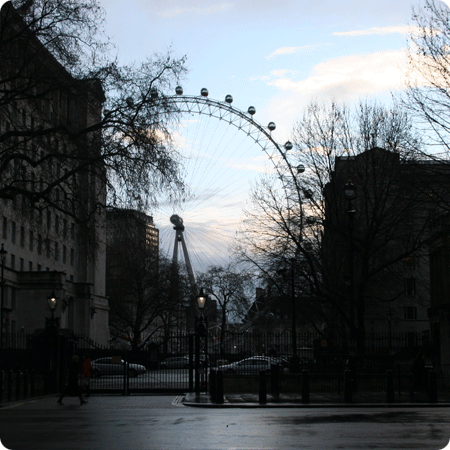Meriel & Tracy, Co-founders of Ecomodo at No.10 Downing Street
…..
Recognising the rise of the ‘sharing economy’ over the past few years and a future where people sharing skills and resources being more social and more efficient, we were recently invited to No. 10, Downing Street for a working session to investigate the evolving needs of the sector and examine what obstacles the UK Government can help to remove to support growth.
Hosted by Daniel Korski, the Prime Minister’s Special Adviser, as well as colleagues from the Cabinet Office and Department for Business, this workshop brought together a number of organisations from start-ups like Ecomodo, through to established corporates like M&S, for roundtable discussions focused around specific themes: transport, task-based sharing, accommodation, exchange of assets and platforms for enabling business.
And in the true spirit of collaborative consumption, No.10’s neighbour popped in to deliver the opening address.
George Osbourne MP and Chancellor of the Exchequer, described us all as insurgences, bringing in new business models to break things down in new ways. As it’s usually big industries that know how to lobby government, so we need to know what the problems are within this sector. He gave the example of peer-to-peer money lending that is working within a heavily legislated area. From which he stated that there is a need to make sure we’re not stopping innovation because of legislation.
Our roundtable was focused on the ‘exchange of assets’ and the output from the discussion fell into 6 key areas: Cultural Change, Taxation, Regulation, Insurance, Promotion and endorsement and a voice for the sector.
The conversation touched on ways to encourage businesses and the public to start to change their behaviour through tax credits and allowances, trust marks for individuals (like a more accessible DBA).
We also discussed steps the government could take to reduce the barriers for these new business models. These included clarity around ownership and liability, a more flexible insurance industry structure to reduce the need for costly multiparty arrangements and more flexible copyright laws to allow IP rights owners new income streams from short-term use micropayments (like the music industry has already).
We also talked about the ways this industry’s needs can stay represented in an environment where the traditional businesses have the loudest voice. Ensuring policy and regulatory decisions are made with attention to the triple bottom line (social, environmental and financial). This might include steps such as banning some goods from landfill to encourage reuse and recycling markets. Formalising this in the same way that business reporting is changing was suggested.
Finally, we commented on ways the sharing economy could be supported by government at a local level and integrated with public service. Though we are a horizontal sector and need a voice as such, the sharing economy needs to be considered and integrated within vertical markets (eg: transport) to have impact.
Feedback from the other roundtables also focused on: tax, reviews of legal definitions, insurance and how to integrate with public sector. From specific markets a review of planning law was suggested alongside how to integrate with public transport and the use of open source data (such as DVLA).
Transparency of data brought up an interested point with regard to tax implications, with the nature of the sharing economy neither focusing on personal and work but being a blend of the two.
An interesting solution to manage tax was proposed that simply expanded the personal allowance from ‘room rental’ already captured on a tax form to enable the rental of anything. This simple idea would build endorsement for the sector and enable people to adopt this behaviour without tax concerns making it easier for people employed and living on benefits alike.
Overall, the participants felt it is important that the market is left open to innovation and that it is allowed to evolve naturally. This means creating an environment that is accessible for businesses of all size, and not constrained by legacy laws and procedures.
The session was wrapped up by an address from Lord David Young, who describes himself as a serial entrepreneur. He commented on a new procurement system – Contract Finder – that should level the playing field between large and small businesses by housing every single public sector contract across the UK in one place and enable a simple one-off capture of an organisations details.
To end, Lord David Young remarked that enterprise is not about business it’s about an attitude to life. I think the same can be very much said about the “sharing economy”
Downing Street
We’d like to say a huge thanks to Benita Matofska from The People Who Share for her support in organising this event and to all the participants for making it an very interesting discussion.
The Sharing Economy Explained. A video from Number10gov
Photos from the event on Flickr


